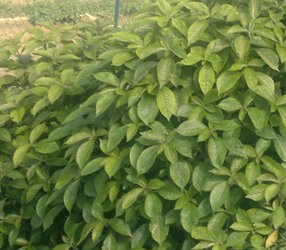| Symptoms of Special Child |
When diagnosing autism, specialists will look for a number of symptoms in each of these areas. The symptoms in these areas of development can differ significantly and vary according to the age of the child.
| Behavior, interests and activities |
Most children with autism are determined to keep to very specific routines and tend to show significant signs of distress if these routines are interrupted or changed. They tend to have limited interests and are often preoccupied with one particular interest or activity. An example of this behavior is the repetitive lining up of an exact number of toys in exactly the same manner rather than playing with them. Another example is memorizing dates and phone numbers, which they repeat to themselves incessantly.
Quite often, a special child will have a fascination with a specific object, toy, tool or even body parts. Some children will have a favorite stick, piece of cloth, cup and toy that they will take with them everywhere or hold on to. Trying to take this away, will cause distress and in some cases very agitated or aggressive behavior.
Autistic children also often fall into patterns of repetitive and purposeless movements of hands, body or head. Examples of such movements are: hand flapping, head banging, rocking and swaying. Abnormalities in posture such as tiptoe walking and odd postures are also often observed.
Many children with autism also tend to keep touching different body part e.g. they might put their hands on their head or slap their heads with both hands. In severe cases children will go as far as hurting themselves repeatedly and may have to wear protective clothing. Some children will also show extreme signs of aggressive and harmful behavior towards themselves and others.
| Eczema |
Eczema is a chronic skin disorder characterized by scaly itchy skin. Some of autism child are easy infected by eczema. Symptoms of eczema may include:
- Blisters with oozing and crusting.
- Ear discharge or bleeding.
- Raw areas of the skin from scratching.
- Redness and inflammation.
- Thickened or leather-like areas.
Eczema is due to a hypersensitivity reaction and is similar to an allergy. This allergic reaction in the skin leads to long-term inflammation of the skin. Eczema is most common in infants and some people seem to grow out of it as they get older. A naturopathic view of eczema is that it is a sign of inflammation in the body and adults who “grow out of it” have simply started to store inflammation in other areas other than the skin.
Children with eczema often have asthma and/or allergies as well. These are all inflammatory issues and the key to managing them naturally is to discern a root cause or underlying issues that is allowing the inflammation to inundate the skin, lungs or upper respiratory tract.
 |
Search for more information about Special Child in Google |
